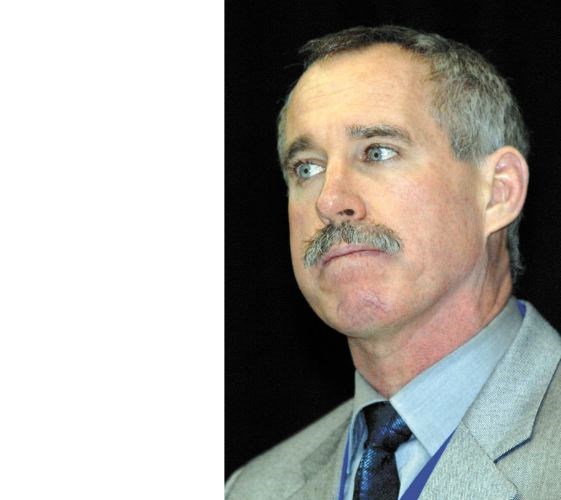The nature of the environmental review process has made it difficult for Northern Gateway to work co-operatively with groups who oppose the pipeline project, company president John Carruthers said Thursday.
"The regulatory process itself is more adversarial than you would like in terms of addressing some of these key issues," Carruthers said Thursday afternoon from Terrace after the first phase of oral arguments wrapped up at the National Energy Board hearings. "Once we're through this process, we need to meet with the key stakeholders, the key communities, the key aboriginal communities and try to address any remaining concerns they have, for those that still oppose the project - and try to address the opportunities specifically for those who support the project."
Northern Gateway is seeking a certificate to proceed with construction of a $6.5 billion heavy oil pipeline from northern Alberta to Kitimat, but has faced strong opposition in B.C. Many of the intervener groups who are against the project criticized the way the company conducted its engagement with the general public and First Nations groups.
With the formal Joint Review Panel hearings expected to wrap up early next week, Carruthers said Northern Gateway will try again to win over pipeline opponents by discussing issues around pipeline safety.
"The next step could be one where you sit down and talk in a way to say how do we jointly address those concerns?" Carruthers said.
Consultation was a hot issue again on Thursday as the Wet'suwet'en made their final argument. Peter Grant, speaking on behalf of the First Nations group whose traditional territory is located west of Prince George, had harsh words for how Northern Gateway has handled aboriginal engagement efforts. Grant highlighted a January 2012 incident where a Northern Gateway official interpreted a Wet'suwet'en custom of feathering someone as an act of hostility and a possibly a death threat. Grant said the company misinterpreted the peaceful gesture and said the company's approach to consultation has been "ethnocentric" and compared it to how First Nations were treated in the 19th century.
Grant said the commitments Northern Gateway have made are just the latest in a long line of promises made by governments and industry.
"Promises have continued and continue to this day," he said, "but the devastation of our land also continues."
As of Thursday afternoon, all interveners had a chance to make their initial final argument but everyone will get one last chance to speak again, this time in reverse order. The second chance, known as bottom up statements, is restricted to responding to points made by other groups during their oral argument only.
The hearings likely would have wrapped up this week, but Northern Gateway asked the panel for an extension before presenting its bottom up argument because it wanted more time to reply to arguments raised by interveners about the suitability of pipeline coatings.
Northern Gateway lawyer Richard Neufeld noted the potential costs involved of using some of the coatings suggested by some groups and asked for more time so the company could develop a complete response.
Carruthers said Northern Gateway must weight the costs of something like a pipeline coating with the benefits it would bring for overall project safety.
"Certain costs may be expensive, but they create significant value," he said. "What we're trying to avoid is the additional costs that don't create any additional values."
At some point the conditions placed on the pipeline could make the project cost prohibitive.
"Cost is a component and that's one thing the shippers will need to look at - what is the ultimate cost and what is the toll for that?" Carruthers said.
The panel initially granted the extension request, but a host of interveners led by the environmental coalition and the Haisla Nation asked the panel to reconsider, citing procedural fairness given they were never granted extra time during the hearings.
After a lengthy debate with different ideas floated, the panel chairwoman Sheila Leggett eventually decided to delay all bottom up arguments until Monday morning.
After the bottom up arguments wrap up, the panel will prepare its recommendations to the federal cabinet, which are due by the end of the year.



